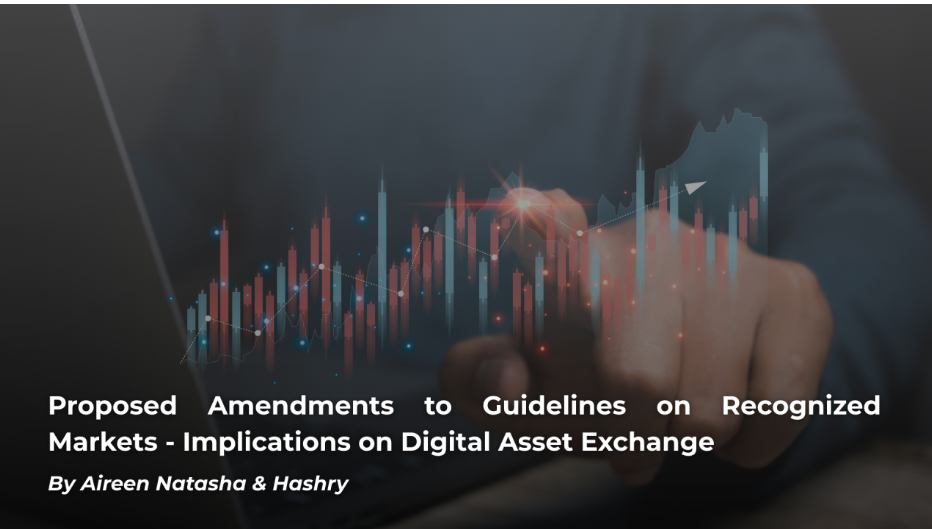In the past few months, we have seen prices of cryptocurrency in particularly Bitcoin grew significantly within a short period of time. Bitcoin was the first decentralized digital currency created in 2009 by Satoshi Nakamoto on the basis of open-source software. It allows users to make peer-to-peer transactions via the decentralized public ledger. Due to the value hike of Bitcoin, we also have seen a record-breaking surge of other similar digital currencies such as Ripple (XRP), Ethereum (ETH) and Litecoin (LTC) in the past few weeks. As a general overview, anyone can create a digital currency or token for general or specific purposes and aims. In many instances and in most jurisdictions, digital currencies created by individual or institutional creators share similar characteristics and functions to as what we now define as the more ‘conventional’ securities – shares, stocks, bonds created by financial institutions or legal entities.
- What is Security Token Offering?
Similar to traditional fund-raising mechanism i.e. Initial Public Offering (IPO) which allow retail or institutional investors to subscribe for shares of a listed company in consideration of cash, Security Token Offering (STO) also allows retail or institutional investors to subscribe for “tokens” that were created by the issuing company (Issuer).
In contrary to IPO in which the value of the shares issued is usually determined by an underwriter where it can be a fixed price or based on book building, price of tokens issued in STO is usually fixed-price and backed by assets such as oil, gold, silver or any other tradeable commodities.
2. Why Asset-Backed STO in Labuan?
Generally, there are four distinct categories of asset-backed tokens namely debt-equity tokens, commodities tokens, hard-asset tokens and soft-asset tokens. This article will not go into details of each category of asset-backed tokens but it is sufficient to say that all types of asset-backed security tokens are permissible to be issued in Labuan. As a result of regulatory uncertainty, some countries, such as China and Qatar have completely banned the issuance of asset-backed tokens. However, other countries like Bermuda, Switzerland, Estonia, and Liechtenstein allow the issuance of security tokens, albeit with certain restrictions and confusing regulatory oversight.
In contrast, Labuan places no limitations or restrictions on asset-backed tokens as long as the Issuer is able to prove liquidity, purpose of issuance and ensuring continuous compliance with the stipulated laws and regulations. As a general overview, regulators are more prepared to approve the issuance of digital currencies that are backed by external assets as compared to gold-backed paper currencies, like many traditional fiat currencies are.
3. What are the important areas for compliance by a potential Issuer?
It is important for potential Issuers to understand the landscape of laws and regulations in Labuan prior to issuance of any security tokens. Currently, the Labuan Financial Services Authority (LFSA) requires all interested parties to apply for its Credit Token Business License. As the digital currencies regulations in Labuan are built-up on the existing traditional credit token regulations, potential Issuers are required to be a Labuan incorporated entity for the purpose of application.
Furthermore, potential Issuers must specify their Anti-Money Laundering/Counter-Financing of Terrorism and KYC Policies, identification of pricing model, distribution, and subscription framework as well as terms and conditions of subscription. In most instances, potential Issuers will be required to engage a Fund Manager or Custodian (either based in Labuan or other jurisdictions) to minimize the risk of electronic theft, fraud and loss.
Similar to IPO, potential Issuers will be required to prepare and finalize a Whitepaper for LFSA’s review and approval. It is also important to note that as Labuan is considered a mid-shore jurisdiction, potential Issuers are only allowed to allot security tokens and receive cash from international retail or institutional investors. Any dealings with Malaysian citizens would require strict compliance and prior approval from the Securities Commission of Malaysia.
4. Labuan Credit Token Business License – What is the application process like?
As mentioned above, the LFSA requires any potential Issuer to be either a Labuan incorporated entity or a foreign Labuan company. Incorporation of a Labuan company can only be done via a resident company secretary approved by the LFSA. The incorporation process will generally take around 6 to 14 days subject to successful client onboarding and KYC process by the appointed resident company secretary.
Following that, application form and other necessary supporting documents may be submitted to the LFSA for their review and approval. According to LFSA’s Client Charter, upon complete submission of documentation and information by a potential Issuer to the LFSA, the approval process will take 21 working days for a normal application and 5 working days for a fast-track application. Even so, a more reasonable timeline for the application and approval process is 3 to 8 months taking into consideration the drafting process of the documents required, continuous coordination with the relevant authorities and parties, compliance with LFSA’s conditional approval and other formalities.
5. Post Issuance of License – What comes after STO?
Upon approval and issuance of the license, the Issuer may legally raise fund via STO to achieve its business objectives as planned. However, the Issuer has another option to utilize the license where it may choose to list their tokens on any Labuan-approved crypto exchanges in which as of today, there are only 2, namely Fusang Exchange and GSX Exchange or alternatively any other crypto exchanges like Binance or Kraken. Listing the tokens on a crypto exchange will allow the tokens to be traded.
Choosing to list its tokens on a particular exchange over the other could mean a difference in term of user base of between one hundred thousand and ten million customers. That is why it is of utmost importance for any cryptocurrency projects, new and old alike, to seek for highly coveted listing spots on the world’s largest crypto exchanges. A project may have a lot of potential but it may not be able to reach its full potential due to lack of exchange listings. However, these exchange listings often do not come without a cost. Most exchanges, both small and large, often charge for a hefty sum to get one’s tokens listed. It has been suggested that a standard rate for a large exchange can be one million USD.
6. What about tax structure in Labuan?
Industry players in Labuan were taken aback when it was announced in early 2019 that the applicability of the special tax rate in Labuan will be substantially revised. The revision imposes certain conditions to be complied by Labuan entities wishing to enjoy the current 3% tax rate and failing which, the Labuan entities will be taxed at the normal rate of 24%.
In order for a Labuan entity holding a Labuan Credit Token License to enjoy the special tax rate, it must maintain a minimum number of 2 full-time employees based in Labuan and submit evidence of annual operating expenditure in Labuan of at least RM100,000.





